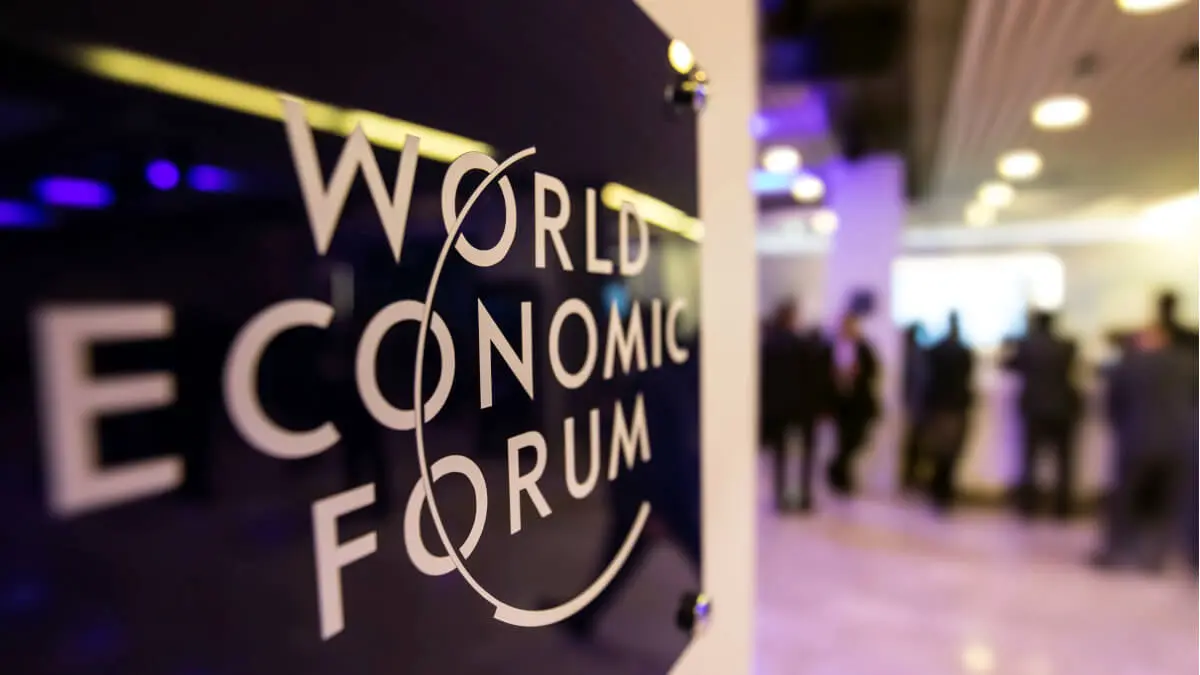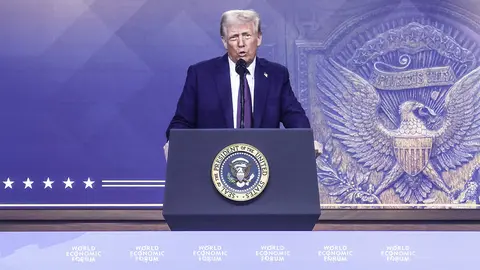Davos exemplifies the frosty relations with Trump

This time it was very forceful, although equally aware that economic power was not visiting the forum to participate with its forecasts for this year, but on the other side of the Atlantic, thousands of kilometres away with Trump surrounded by a dominant oligarchy.
According to Forbes, in its 2025 richest people index, ten of the world's billionaires are American and Trump has at least surrounded himself with a group of them with Elon Musk at the top of the list of the richest of the rich as the owner of SpaceX, Tesla, X and several companies with a fortune valued at 421 billion dollars.
Since Musk openly gave his support to Trump in the campaign and donated 220 million dollars to him, Musk's fortune grew, according to Forbes, by a further 91 billion dollars to reach the aforementioned amount and since 20 January he has been the director of the Government Efficiency Directorate, employed by Trump.
In second place is Jeff Bezos, founder of Amazon, with a fortune of 233.5 billion dollars; in third place is Larry Ellison, CEO of Oracle with 209.7 billion dollars, another Trump ally, as is Mark Zuckerberg, the owner of Meta, who is in fourth place with his wealth of 202.5 billion dollars.
The new president is fully aware of the power of social networks and artificial intelligence, and his big bet is to continue creating wealth through these technologies.
The discussions at the World Economic Forum, attended by various political leaders, government officials, businessmen and activists, revolved around the first actions announced by Trump.
The President of Spain, Pedro Sánchez, gave one of the speeches that has generated the most comment after directly attacking the new Trumpist oligarchy. For some reason, Spain has slipped into Trump's agenda, who went so far as to say that Spain should be taxed at 100% after pointing out that it was part of the BRICS, which is incorrect because the members are Brazil, Russia, India, China and South Africa.
‘The tech billionaires want to overthrow democracy. This, ladies and gentlemen, is the truth of the terrible threat we face. The technology that was meant to set us free has become the tool of our own oppression,’ Sánchez told the audience present.
The Spanish leader announced three measures that he will propose to all European leaders at the next meeting of the European Council in Brussels.
The first refers to putting an end to anonymity on social networks, promoting the principle of pseudo-anonymity as an element of operation and obliging all these platforms to link each user account to a European digital identity wallet. In this way, citizens could use pseudonyms if they wanted to, but in the event of a crime, the public authorities could link these pseudonyms to real people and hold them accountable.
The second is to open up the black box of algorithms to check whether they comply with EU legal and moral requirements. For this reason, Sánchez explained, the EU's Digital Services Act would have to be fully applied, as well as strengthening the capacities and competences of the European Centre for Algorithmic Transparency so that it can inspect the functioning of social networks without limitations.
And the third measure is to ensure that the CEOs of social networks are personally held accountable for the failure to comply with the laws and regulations on their platforms, as is the case in other sectors. ‘The tycoons of social networks must answer if their algorithms poison our society.’
The Spanish government, formed by a left-wing coalition, has been highly critical of Trump's return to the presidency and to the international stage. The second vice-minister, Yolanda Díaz, who is also minister of labour, went so far as to say that Trump's victory was bad news for all citizens because he uses politics as a tool to poison with hate.
Artificial intelligence alert
There is another concern also caused by the new US government: Trump announced the creation of a company that plans to invest up to 500 billion dollars in infrastructure linked to artificial intelligence and will do so through a new partnership formed by Oracle, SoftBank and OpenAI.
The US president justifies this project on the basis that it will allow his country to guarantee the future of technology without external dependencies. It is called Stargate and it is believed that, among other goals, it intends to conquer space through artificial intelligence; in principle, Softbank will have financial responsibility for the project, while OpenAI will supervise operations.
There were also reactions to this at Davos: Julie Sweet, CEO of Accenture, the multinational consulting and information technology firm, praised the Stargate investment as absolute validation that AI is important for companies and countries.
Sweet argued that the United States seemed willing to maintain its approach to artificial intelligence of innovation first, and then apply appropriate safety barriers.
For his part, the Malaysian Prime Minister, Anwar Ibrahim, said that his country will have to navigate artificial intelligence and, he said, that following Trump's announcement, he will commit to pushing artificial intelligence in Malaysia at a faster pace.
Anwar spoke in Davos after the Southeast Asian nation and its neighbour Singapore reached an agreement to create a special economic zone that would increase job creation and attract investment.
‘Artificial intelligence is, of course, a new challenge. We don't have the experience or the knowledge. But artificial intelligence means changing the education system, health services, blockchain, so it will have to happen,’ according to the Malaysian Prime Minister.
At the World Economic Forum, panelists discussed artificial intelligence and its impact on the economy, on industries, on the public sector and on everyday life in general. The fact that Trump has taken a risky initiative with the creation of Stargate has posed a challenge to other leaders who will not want to be left behind.
The message from the new occupant of the White House is clear: during his term of office his priorities are to promote the rapid advancement of artificial intelligence; to favour quantum computing and blockchain as well as to modernise the financial system with the inclusion of bitcoin even in the Federal Reserve.
The warning is to renew or die; to take risks or become permanently stagnant and go from being a technology provider to a dependent market with all the risks that this implies, even for the field of security itself.
While advances in artificial intelligence, quantum computing, biotechnology, robotics and automation and other fields present numerous opportunities, new technologies are also increasing the demand for energy.
By 2026, the International Energy Agency (IEA) predicts that electricity consumption for data centres alone could reach one thousand terawatts per hour, roughly equivalent to Japan's energy consumption.
Hence, Stargate is becoming one of the cornerstones of Trump's strategy because it will start by setting up in Texas to provide data centres and data storage, but also the electricity needed for it to operate.
Trump has not even been in power for two weeks and he has already set the pace for the entire world agenda by putting on the table the issues he will prioritise to ensure that the United States remains a power in the remainder of the 21st century.


